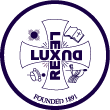Lower Division Courses
BIO-102 Biology of Human Disease 3.0 cr. lecture, 1.0 cr. laboratory
Winter, spring. Emphasis on pathogenic organisms and human immune responses. This is a laboratory course designed for students not majoring in biology. Three lectures and one three-hour laboratory weekly. (NATURAL SCIENCE LAB)
BIO-105 Human Anatomy & Physiology I 3.0 cr. lecture, 1.0 cr. laboratory
Spring. Anatomy and physiology of the human body; cell structure and function; tissues; skeletal, muscular, circulatory, and nervous systems. Three lectures and one three-hour laboratory weekly. This course is designed for students not majoring in biology. (NATURAL SCIENCE LAB)
BIO-120 Frontiers in Biology 3.0 cr. lecture, 1.0 cr. laboratory
Focus on frontier areas of biology; examples may include human genetics, bioinformatics, or cancer biology. The frontier topics will cover the fundamental concepts including biology of inheritance and gene structure, function, and expression. Emphasis on scientific problem-solving, including collection, analysis, and interpretation of biological data. Readings, lectures, discussions, lab activities, and computer simulations. (NATURAL SCIENCE LAB)
BIO-122 Introduction to Environmental Biology 3.0 cr. lecture, 1.0 cr. laboratory
Study of ecological principles and application of biological concepts to environmental problems and issues. Topics include: interactions of organisms with their environment; impacts of human activities on the biosphere; energy flow, resources, climate, and nutrient cycles; species, population-, community-, and ecosystem-level processes and organization; physiological, behavioral and life history adaptations of organisms to their environments; species interactions, population growth, and extinction. Lectures, discussion, laboratory, and field activities. (NATURAL SCIENCE LAB)
BIO-129 Murder, Medicine, & Magic 3.0 cr. lecture, 1.0 cr. laboratory
Fall or winter. A study of botany with emphasis on ethnobotany and the uses people have made of plants. Topics include the basic botanical principles (such as genetics, taxonomy, evolution, reproduction), uses of plants for food, fiber, medicines, beverages, and other ends, and human physiological needs that plants satisfy. (NATURAL SCIENCE LAB)
BIO-140 Idaho Natural History 3.0 cr. lecture, 1.0 cr. laboratory
Spring. Natural history, flora, fauna, and ecological relationships of the local area. Three lectures and one four-hour laboratory weekly. This course is designed for students not majoring in biology. (NATURAL SCIENCE LAB)
BIO-220 Organismal Biology 3.0 cr. lecture, 1.0 cr. laboratory
Spring. Prereq.: BIO-131. The biology of individual plant and animal organisms: development, functional morphology, anatomy, and physiology. (NATURAL SCIENCE LAB)
BIO-221 Population & Ecosystem Biology 3.0 cr. lecture, 1.0 cr. laboratory
Fall. Prereq.: BIO-131 or 220; prereq. or coreq.: MAT-112. The biology of populations and communities: population genetics, evolution, ecology, and animal behavior. Three lectures and one four-hour laboratory weekly. (NATURAL SCIENCE LAB)
BIO-226 Human Anatomy & Physiology II 3.0 cr. lecture, 1.0 cr. laboratory
Prereq.: BIO 105 or BIO 220. Advanced studies of the human body including the cardiovascular, nervous, respiratory, digestive, and urinogenital systems. Three lectures and one three-hour laboratory weekly. (NATURAL SCIENCE LAB)
BIO-230 Cell & Molecular Biology 3.0 cr. lecture, 1.0 cr. laboratory
Fall, spring. Prereq.: BIO-131 and CHE-141. Introduction to the components of cells and processes that occur in living cells. Topics include cell structure and function, genetic events, regulation of gene expression, and the chemical pathways of metabolism. Readings, lectures, discussions, and laboratory activities. Three lectures and one three-hour lab weekly. (NATURAL SCIENCE LAB)
BIO-260 Diversity of Life 1.0 cr. lecture, 1.0 cr. laboratory
Fall, winter, spring. Prereq.: completion of two courses among BIO-220, 221, or 230. A survey of major taxonomic groups of organisms with an emphasis on biological classification, phylogeny reconstruction, biological diversity, and comparative morphology. Readings, lectures, discussions, and lab activities. Six hours per week for six weeks. (NATURAL SCIENCE LAB)
